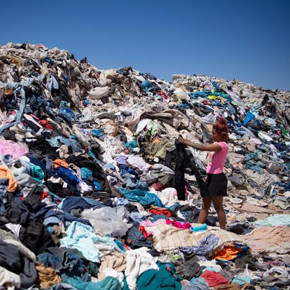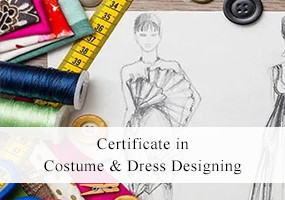The Dark Side of Fast Fashion: Cheap Clothes, High Costs

The fashion industry has always been synonymous with creativity and innovation, but the industry has transformed rapidly in the past decade with the rise of fast fashion. In recent years, the fashion industry has experienced a significant shift towards fast fashion. Fast fashion is a business model that focuses on creating cheap, trendy clothes that are produced quickly and sold rapidly. Brands like Zara, H & M, and Forever 21 have gained immense popularity and market share in recent years, largely because of their fast fashion offerings. However, the fast fashion model is also notorious for its environmental, social, and economic impact of fashion. This article aims to explore the various aspects of fast fashion and its impact on people and the planet.
A Brief History of the Fashion Industry
The fashion industry has a rich and fascinating history that dates back to the 19th century. The industry began with the emergence of haute couture in Paris, where designers created one-of-a-kind garments for wealthy clients. With the advent of the Industrial Revolution, fashion became more accessible, and the mass production of clothing began. This led to the democratization of fashion, making it available to people of all classes. In the early 20th century, significant players such as Coco Chanel, Christian Dior, and Yves Saint Laurent shaped the fashion industry with their iconic designs. The 1960's and 70's saw the rise of youth culture and streetwear, with designers such as Mary Quant and Vivienne Westwood leading the way. In recent years, there has been a growing focus on sustainable and ethical fashion, as consumers become more aware of the environmental and social impacts of fast fashion. The history of the fashion industry is one of constant change, with new trends and styles emerging each season.The Rise of Fast Fashion
The fast fashion model emerged in the early 2000's as a response to the growing demand for trendy and affordable clothes. This section discusses the factors that led to the rise of fast fashion, such as globalization, technological advancements, and changing consumer behavior. It also highlights the brands that played a significant role in popularizing fast fashion and their business strategies. The rise of fast fashion can be attributed to several factors. One of the most significant factors is globalization, which has made it easier for companies to manufacture and transport clothing on a massive scale. Additionally, advances in technology and the internet have enabled faster communication and more efficient supply chains. Another contributing factor is the increasing demand for cheap, trendy clothing among consumers, particularly young people. Fast fashion brands have responded to this demand by producing clothes quickly and cheaply, often using low-cost labor in developing countries. Finally, the rise of social media has also played a role in the growth of fast fashion, as it has made it easier for consumers to discover new trends and share their fashion choices with others. All of these factors have combined to create a perfect storm of demand for fast fashion, leading to its explosive growth over the past few decades. Low Priced Fast Fashion Clothes on Sale
Low Priced Fast Fashion Clothes on Sale  Attractive Fast Fashion Clothes in Store
Attractive Fast Fashion Clothes in Store The Dark Side of Fast Fashion
The fast fashion industry has had significant negative impacts on the environment, labor, and society. The environmental impact of fast fashion is one of the most pressing issues, as the industry uses non-renewable resources and contributes to pollution and waste. The production of synthetic fabrics requires large amounts of oil and water, and the use of toxic chemicals in textile dyeing and finishing processes releases pollutants into the air and water. In addition, fast fashion encourages consumers to buy and discard clothing quickly, leading to a massive amount of textile waste that ends up in landfills. The labor exploitation inherent in the fast fashion business model is also a major concern, as workers in developing countries are often paid low wages and subjected to poor working conditions. The use of child labor is also a prevalent issue in the industry. Furthermore, the pressure to conform to fashion trends and keep up with the latest styles can lead to body image issues and over consumption of clothing, contributing to a throwaway culture. Overall, the negative impacts of fast fashion on the environment, labor, and society are substantial, highlighting the need for more sustainable and ethical practices in the fashion industry. Disposal of Clothes after Single Use
Disposal of Clothes after Single Use  Negative Effects of Fast Fashion on Environment
Negative Effects of Fast Fashion on Environment Sustainable Alternatives to Fast Fashion
As the negative impacts of fast fashion continue to mount, several sustainable alternatives to the fast fashion model have emerged. The principles of Sustainable Fashion revolve around reducing waste, using sustainable materials, and promoting ethical labor practices. Brands that adopt these practices focus on creating clothes that are durable, timeless, and made with environmentally friendly materials, such as organic cotton, recycled polyester, and plant-based fabrics. Sustainable fashion brands also promote ethical labor practices by ensuring that workers are paid fair wages and work in safe conditions. These brands have to overcome challenges such as higher costs, limited availability of sustainable materials, and the need to educate consumers about the value of sustainable fashion. However, several brands have successfully adopted sustainable fashion practices, such as Patagonia, Eileen Fisher, and Reformation, and have become leaders in the movement. As consumers become more aware of the environmental and social impacts of fast fashion, Sustainable Fashion will continue to grow and become more mainstream.Empowering Sustainability: How Consumer Choices Can Change the Fashion Industry

Consumers play a crucial role in the fashion industry, as they create the demand for trendy and affordable clothing. As such, consumers have the power to influence the industry towards more sustainable and ethical practices. Consumer education, awareness, and activism are essential in promoting sustainable fashion. Educating oneself on the environmental and social impacts of fast fashion and the benefits of sustainable fashion is the first step. Consumers can also choose to support sustainable fashion brands that prioritize environmental and ethical considerations. Additionally, consumers can extend the life of their clothing by repairing and altering them, donating or reselling them, or choosing to buy secondhand clothing. Small actions such as reducing waste and using eco-friendly detergents can also contribute to a more sustainable fashion industry. Consumers can also demand more transparency from fashion brands, such as information on their supply chains and labor practices. Through their actions and choices, consumers have the power to create a demand for sustainable fashion, and in turn, drive the industry towards more sustainable and ethical practices.
Fast fashion has become a ubiquitous part of the fashion industry, but its impact on people and the planet is far-reaching. The fast fashion model has created a culture of over consumption, waste, and exploitation that needs to be addressed. As consumers, we have the power to demand more sustainable and ethical practices from the fashion industry. By supporting sustainable fashion brands and making informed choices, we can contribute to a more sustainable and equitable future for the fashion industry.Designing a Sustainable Fashion Future: The Vital Role of Fashion Designers and Courses
Fashion Designer and Fashion Design Course are important players in promoting and advancing sustainable fashion. By integrating sustainable practices and concepts into their curriculum, fashion design courses can produce graduates who are well-equipped to design and produce sustainable clothing. These graduates can then go on to influence the industry as they work towards creating more eco-friendly and socially responsible designs. Furthermore, fashion designers have the power to influence consumer behavior by promoting sustainable fashion through their collections and public appearances. They can use their platforms to educate consumers about sustainable fashion and encourage them to make more conscious choices when it comes to their clothing purchases. Ultimately, the role of fashion designers and fashion design courses is vital in shaping the future of the fashion industry towards a more sustainable and ethical direction.| Published On | - | 2023-05-02 |
| Modified On | - | 2023-05-02 |
| Author | - | Team WIFD |
| Publisher | - | Waves Fashion Institute |
| https://wifd.in//the_dark_side_of_fast_fashion | ||





Chitrangda Singh sparkles in a shimmering, midnight blue gown with a plunging neckline, a trendy slit and elaborate beadwork.

Iswarya Menon stuns in a sky blue sheer half-saree adorned with sequins, setting the stage for a mesmerizing fashion tale.

View Benjamin Shine's World of Tulle Artistry, where Fabric transforms into Lifelike Sculptures.

Discover 18 must-have jeans styles for 2024! Elevate your look with trendy denim that reflects your unique style.